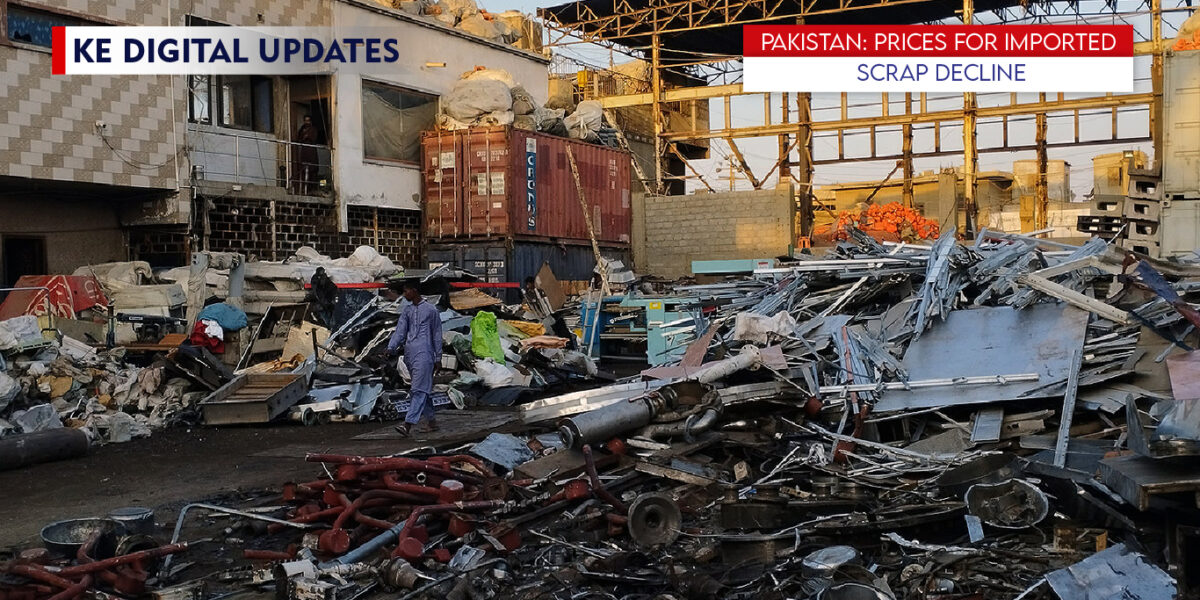Published on December 04, 2024
The market for imported ferrous scrap in Pakistan has experienced a decline in prices recently. This trend reflects broader economic challenges and market dynamics. In November, the prices for imported ferrous scrap fell by $4 per tonne, bringing European shredded scrap to an average of $382 per tonne. Despite these pressures, buying activity has shown some resilience, picking up ahead of the winter season with recent transactions recorded at $386-390 per tonne.
Market Pressures and Price Decline
The decline in imported scrap prices can be attributed to several factors. One of the primary reasons is the weak demand for finished steel products domestically, coupled with an oversupply of scrap metal. These conditions have created a buyer’s market, where purchasers have leverage to push prices lower. The global scrap market has also seen fluctuations influenced by economic uncertainties and varying demand levels across different regions.
Resilient Buying Activity
Despite the downward pressure on prices, buying activity has notably increased. This uptick is largely due to seasonal factors as buyers prepare for the winter and accompanying holidays. The anticipation of increased demand for steel in the construction sector during winter has prompted buyers to secure their scrap supplies at lower prices.
Local Market Dynamics
Locally, the steel market faces ongoing challenges. Rebar prices have been range-bound, fluctuating between PKR 245,000 and 248,000 per tonne. This stability in rebar pricing contrasts with the volatility in scrap prices and underscores the complex market dynamics. The oversupply of scrap and sluggish demand for finished steel products have created a challenging environment for local producers.
Impact of Regulatory Measures
In addition to market pressures, regulatory tightening on tax evasion has significantly impacted market confidence. Pakistan’s Federal Board of Revenue (FBR) has been actively pursuing measures to address tax evasion within the steel sector. These efforts focus on manufacturers in the FATA (Federally Administered Tribal Areas) and PATA (Provincially Administered Tribal Areas) regions, which have historically enjoyed certain tax exemptions. The crackdown on misuse of these exemptions aims to level the playing field for compliant manufacturers but has introduced some uncertainty in the market.
Political Instability
Political instability continues to be a significant factor affecting market confidence. Recent protests and strikes have disrupted normal business activities, causing fluctuations in demand and trading volumes. The ongoing political unrest has created a cautious atmosphere among market participants, further exacerbating the challenges faced by the steel and scrap industries.
Conclusion
The decline in imported scrap prices in Pakistan reflects a confluence of market pressures, including weak demand, oversupply, regulatory measures, and political instability. While buying activity has recently increased due to seasonal factors, the overall market remains under significant strain. Moving forward, the ability of the market to stabilize and recover will depend on various factors, including regulatory clarity, political stability, and the balance between supply and demand. Stakeholders in the industry will need to navigate these challenges carefully to maintain competitiveness and ensure sustained growth.


